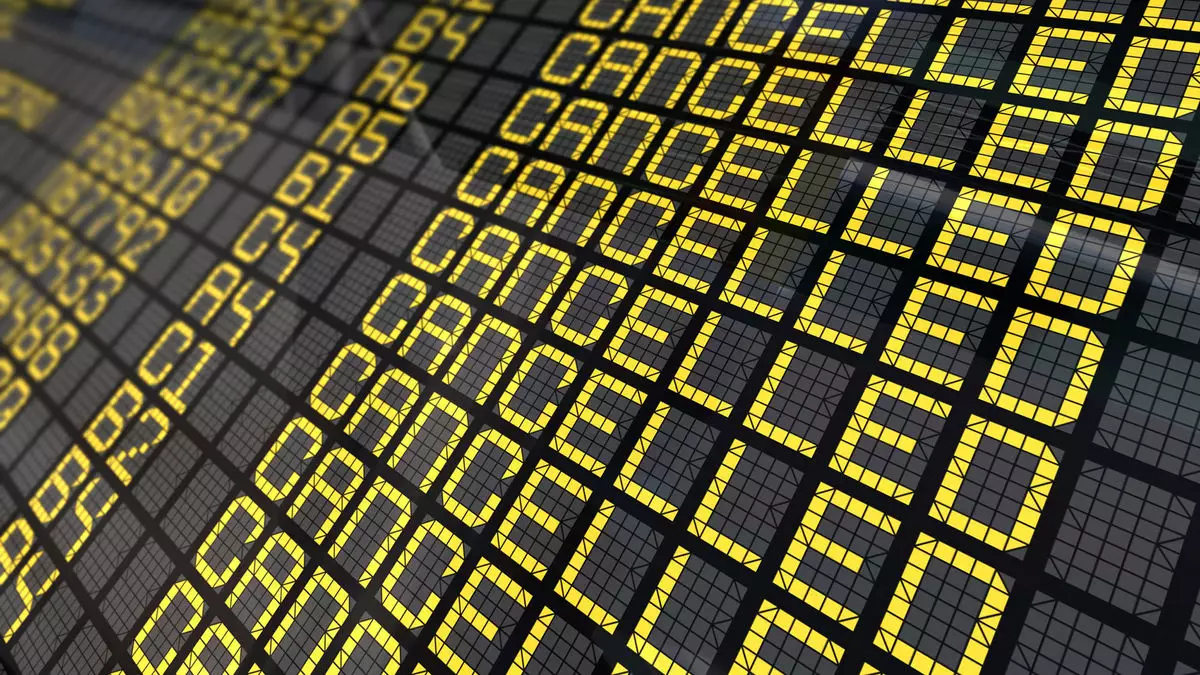The recent proposal from the U.S. Department of Transportation (DOT) aims to reshape the landscape of air travel in the United States by mandating compensation for passengers facing extensive delays and cancellations. Originally announced on December 5, these regulations target the airline industry’s responsibility in cases of service disruptions. By analyzing the implications of this proposal, we can better understand the balance that needs to be struck between consumer protection and the economic realities of airline operations.
Under the proposed rule, airlines would be required to compensate passengers for cancellations and delays exceeding the three-hour mark, but only if the airline itself is at fault. The compensation would be tiered, starting from $200 to $300 for delays between three to six hours, scaling up to $375 to $525 for six-hour delays, and peaking at $750 to $775 for those lasting longer. This tiered structure aims to reflect the severity of the inconvenience experienced by passengers. The DOT is currently soliciting feedback regarding specific amounts and whether smaller airlines should be subject to different compensation levels.
One of the vital aspects of the proposal is its predominant focus on ensuring that passengers are not left to shoulder the burden of disruptions stemming from airline operations. Historically, airlines have faced scrutiny when delays and cancellations leave passengers in limbo. By establishing clear compensation mechanisms, the DOT seeks to instill accountability within the industry.
Historical Context and Impetus for Change
This initiative did not emerge in a vacuum. The Biden administration initially floated the idea in May of the previous year, but recent developments suggest that the urgency has intensified. DOT Secretary Pete Buttigieg cited the pandemic as a pivotal moment for the airline industry, with public funds having been instrumental in keeping airlines afloat during their darkest hours. The message is clear: as the industry recovers, so too should its commitment to enhanced passenger rights.
However, the fluid landscape of regulatory frameworks implies that future administrations might shape or overturn these proposals. This uncertainty adds another layer of complexity to the debate about consumer protections in air travel. The forthcoming Trump administration, should it occur, would ultimately hold the power to determine the fate of these regulations, raising concerns about the consistency and permanence of such measures.
As is typical in any regulatory reform, pushback from the airline industry is likely to be robust. Airlines for America (A4A), a major industry advocacy group, has already raised alarm bells. They argue that existing protocols, which include automatic refunds and reimbursements for significant delays, suffice without the need for additional mandates. The concern is that imposing these new compensation frameworks could lead to increased ticket prices, ultimately making flying less accessible for cost-sensitive travelers.
This perspective opens up a significant discussion regarding the balance between operational costs and consumer rights. While airlines advocate for their economic survival, passengers are increasingly demanding accountability and transparency — a tension that underscores the challenges faced by regulators as they navigate the interests of multiple stakeholders.
Interestingly, the proposed changes mirror consumer protection regulations already in place in other countries, including Canada, the U.K., and parts of the EU. These regions have established laws mandating compensation for delays and cancellations, with the EU’s maximum compensation reaching €600. Such international precedents lend credence to the notion that enhanced passenger protections can coexist with healthy airline operations.
In the long term, adopting robust compensation mechanisms aligns with a growing global trend towards elevating consumer rights in all sectors, including transportation. The challenge lies in crafting regulations that are both fair to travelers and sustainable for airlines.
The Road Ahead: Defining Accountability
For the DOT, the next steps involve not only finalizing the compensation proposal but also establishing clearer guidelines for how delays are classified, especially in cases with multiple contributing factors. The goal is to create a transparent system that can be navigated effectively by both passengers and airlines, minimizing ambiguity regarding the rights and responsibilities of each party.
This initiative represents just one facet of a broader push to enhance consumer protections in the airline industry — a necessary evolution as air travel continues to expand. As public feedback is gathered and regulatory frameworks are shaped, the focus remains firmly on empowering passengers while recognizing the realities faced by airlines.
Ultimately, the proposed compensation framework marks a potential turning point in how the industry addresses service disruptions. By fostering an environment of accountability, it may pave the way for a new era in commercial air travel where the interests of consumers take precedence, ensuring that flying remains both a privilege and a right for all.


Leave a Reply